Guest Blog by: Dr. Jo Latimore, Department of Fisheries and Wildlife, Michigan State University
The term “citizen science” is used a lot these days. In the past few years, it has evolved from the latest “new” idea, to a popular buzzword, to an everyday phrase. Many of us involved with volunteer lake and stream monitoring feel like we were doing citizen science before it was cool! (Did you know? The Volunteer Stream Monitoring Program turned 20 last year, and the Cooperative Lakes Monitoring Program celebrates its 45th birthday this year! Both of these programs have been operating under the umbrella of MiCorps since 2004.)
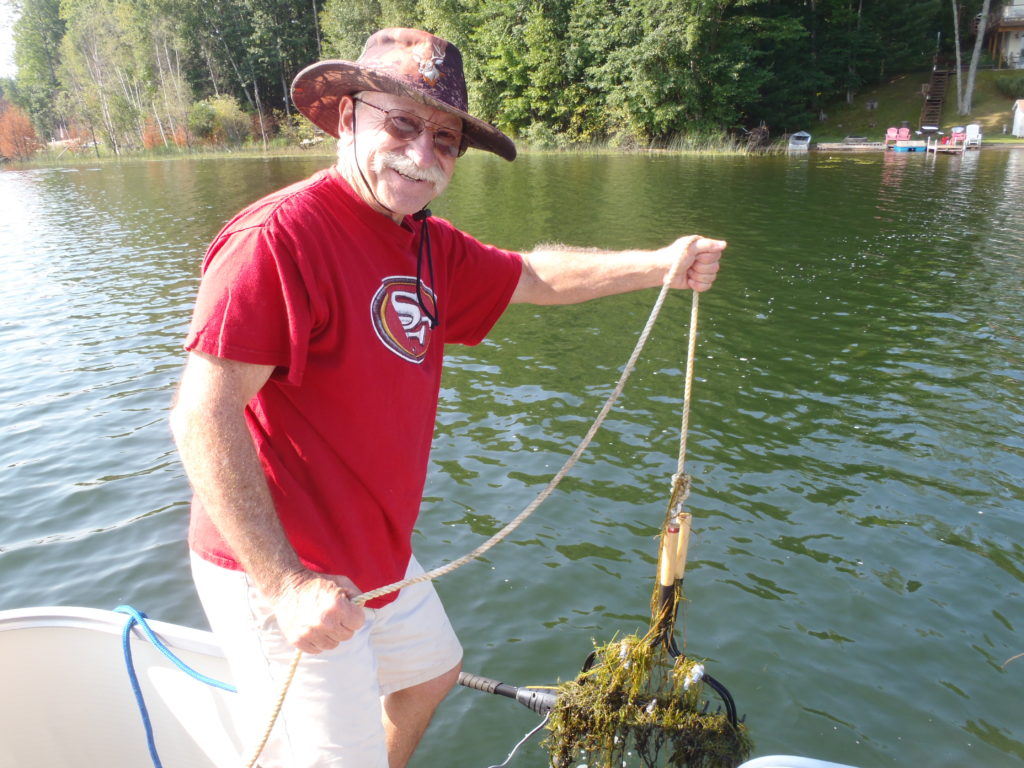 But wait – what exactly is “citizen science”, anyway? According to the Citizen Science Association, an international organization formed in 2012 to support and promote it, citizen science is “the involvement of the public in scientific research – whether community-driven research or global investigations.” Similarly, the Oxford English Dictionary recently defined citizen science as “scientific work undertaken by members of the general public, often in collaboration with or under the direction of professional scientists and scientific institutions.”
But wait – what exactly is “citizen science”, anyway? According to the Citizen Science Association, an international organization formed in 2012 to support and promote it, citizen science is “the involvement of the public in scientific research – whether community-driven research or global investigations.” Similarly, the Oxford English Dictionary recently defined citizen science as “scientific work undertaken by members of the general public, often in collaboration with or under the direction of professional scientists and scientific institutions.”
So – if you’re collecting or interpreting data in a MiCorps lake or stream monitoring program, are you a citizen scientist? Absolutely!
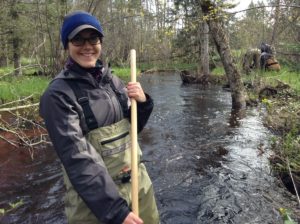 Volunteer lake and stream monitoring has a long history in the US and across the globe, and experience from volunteer lake and stream monitoring programs has helped inform the growth of citizen science in other fields, from astronomy to zoology. To get a taste of the wide variety of citizen science programs worldwide, check out SciStarter. The site catalogs over 1500 citizen science projects, including both in-person and online projects, and helps you find opportunities that fit your location and interests. The MiCorps Cooperative Lakes Monitoring Program and Volunteer Stream Monitoring Program are both listed on SciStarter!
Volunteer lake and stream monitoring has a long history in the US and across the globe, and experience from volunteer lake and stream monitoring programs has helped inform the growth of citizen science in other fields, from astronomy to zoology. To get a taste of the wide variety of citizen science programs worldwide, check out SciStarter. The site catalogs over 1500 citizen science projects, including both in-person and online projects, and helps you find opportunities that fit your location and interests. The MiCorps Cooperative Lakes Monitoring Program and Volunteer Stream Monitoring Program are both listed on SciStarter!
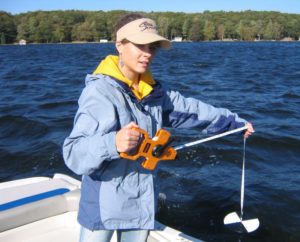 Likewise, on Zooniverse you can explore and join nearly 100 active online citizen science projects, ranging from identifying animals photographed on game cameras in Africa to measuring nebulae in space! I am currently participating in the “Cedar Creek: Eyes on the Wild” project as a citizen scientist, identifying wildlife captured on trail cameras on a preserve in Minnesota. It’s fun to see what’s been captured (playful raccoons! battling bucks! bison on the prairie!), and rewarding to know that I’m contributing to important research on wildlife and grassland ecology.
Likewise, on Zooniverse you can explore and join nearly 100 active online citizen science projects, ranging from identifying animals photographed on game cameras in Africa to measuring nebulae in space! I am currently participating in the “Cedar Creek: Eyes on the Wild” project as a citizen scientist, identifying wildlife captured on trail cameras on a preserve in Minnesota. It’s fun to see what’s been captured (playful raccoons! battling bucks! bison on the prairie!), and rewarding to know that I’m contributing to important research on wildlife and grassland ecology.
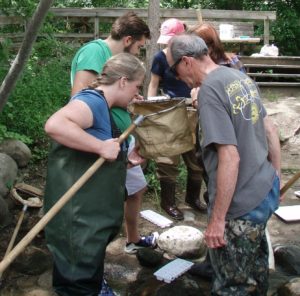 If you are leading a MiCorps monitoring program, or just want to be a more productive and engaged citizen scientist, there are some great resources available to you. First – of course! – check out the Resources tab here on the MiCorps website, which features publications and resources related to volunteer monitoring of lakes and streams here in Michigan and nationally. The Cornell Lab of Ornithology maintains an online Citizen Science Toolkit for designing new citizen science projects and supporting existing ones. SciStarter’s citizen science page has a wealth of information on the history, practice, and future of citizen science, and includes a long list of online resources, books, and examples of exciting research discoveries made possible through citizen science.
If you are leading a MiCorps monitoring program, or just want to be a more productive and engaged citizen scientist, there are some great resources available to you. First – of course! – check out the Resources tab here on the MiCorps website, which features publications and resources related to volunteer monitoring of lakes and streams here in Michigan and nationally. The Cornell Lab of Ornithology maintains an online Citizen Science Toolkit for designing new citizen science projects and supporting existing ones. SciStarter’s citizen science page has a wealth of information on the history, practice, and future of citizen science, and includes a long list of online resources, books, and examples of exciting research discoveries made possible through citizen science.
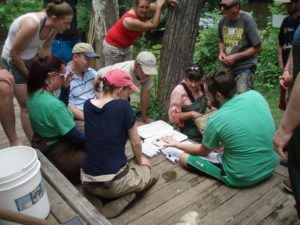 Finally, the Citizen Science Association publishes an online, open-access (free!) academic journal featuring peer-reviewed research, reviews, case studies and more – all focused on citizen science, and they host a biannual conference. This year the Citizen Science Association conference was held March 13-17 in Raleigh, North Carolina. I’ve attended a few of these events and can attest that they are an amazing opportunity to immerse yourself in citizen science, spend time with incredibly dedicated volunteers, researchers, and program leaders, and bring back ideas you can apply at home.
Finally, the Citizen Science Association publishes an online, open-access (free!) academic journal featuring peer-reviewed research, reviews, case studies and more – all focused on citizen science, and they host a biannual conference. This year the Citizen Science Association conference was held March 13-17 in Raleigh, North Carolina. I’ve attended a few of these events and can attest that they are an amazing opportunity to immerse yourself in citizen science, spend time with incredibly dedicated volunteers, researchers, and program leaders, and bring back ideas you can apply at home.
Interested in becoming a volunteer lake monitor with the Cooperative Lakes Monitoring Program? Enrollment is now open for a variety of 2019 lake monitoring parameters. Visit our Become a Volunteer page to learn more.





